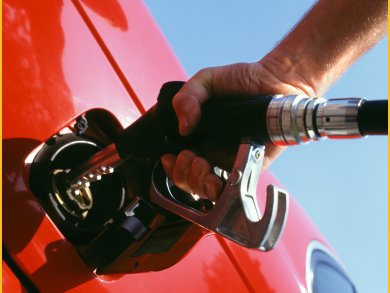Changing the oil in cars and trucks produces about 8 billion gallons of used motor oil each year around the world. Transforming used motor oil into gasoline provides a new use for a waste material as well as a supplemental fuel source for an energy-hungry world.
Among the most promising recycling techniques is pyrolysis,heating oil at high temperatures in the absence of oxygen to break it down into a mix of gases, liquids, and a small amount of solids. The gases and liquids can then be chemically converted into gasoline or diesel fuel. However, the current processes heat the oil unevenly, producing gases and liquids not easily converted into fuel.
Howard Chase, University of Cambridge, UK, and his research team overcame this problem with their new pyrolysis technology. They mixed samples of waste oil with a highly microwave-absorbent material and then heated the mixture with microwaves. The pyrolysis process appears to be highly efficient, converting nearly 90 % of a waste oil sample into fuel. So far, the scientists have used the process to produce a mixture of conventional gasoline and diesel.
Image: (C) Brand X Pictures
- presented at the 241st National Meeting & Exposition of the American Chemical Society (ACS)
Other articles related to the ACS meeting
- Removal of Strontium From Nuclear Waste
Removal of strontium from nuclear waste streams by desmid green algae - Hollywood Chemistry
And the Winner for the Most Accurate Science in a Movie or TV series goes to … - Kevlar-like Plastic from Pineapples and Bananas
Nano-cellulose fibers from plants may lead to stronger, lighter, and more sustainable materials to replace automotive plastics - Charles Lathrop Parson Award
Michael E. Strem, president of high purity chemicals maker Strem Chemicals, receives the ACS award for outstanding public service - Priestley Medal Awarded
Ahmed H. Zewail, California Institute of Technology, USA, awarded ACS’s highest honor Priestley Medal Awarded - Dendrimersomes: A New Mode of Drug Delivery?
Amphiphilic branched nanostructures self-assemble in water to form packets capable of mimicking biological membranes - A New Class of Therapeutics
Staple peptides are able to address targets previously considered undruggable by conventional therapeutics




